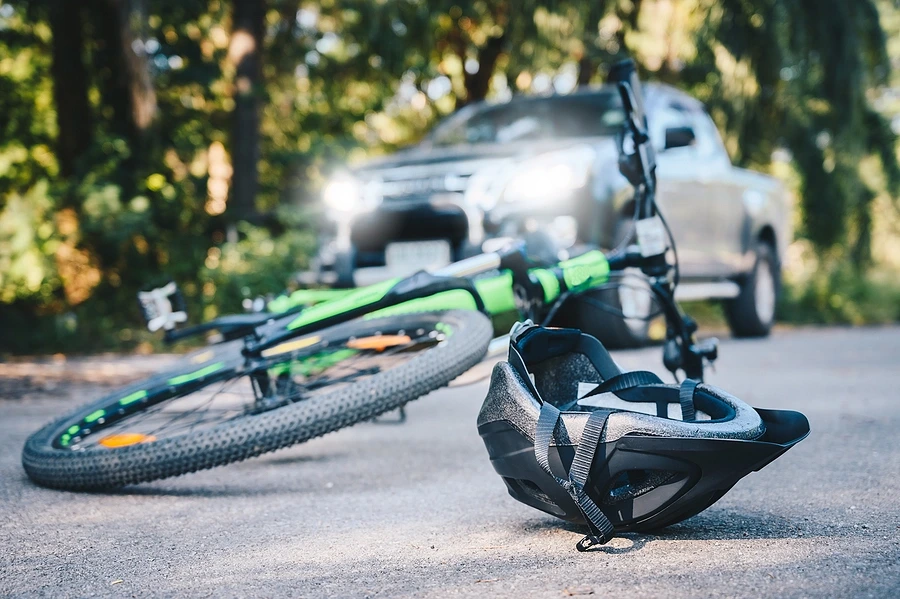What Cyclists in Orlando Should Know About Florida Bicycle Laws and Safety

Bicycling is a popular way to get around in Orlando. Whether you’re riding for exercise, commuting to work, or simply enjoying the weather, it’s important to understand the legal rights and responsibilities that come with sharing the road. Florida has specific laws that apply to cyclists, and knowing these rules can help prevent accidents and protect you if something goes wrong.
While riding a bike might seem simple, the legal aspects are often misunderstood. If you’re ever injured in a crash, especially one involving a motor vehicle, the legal protections offered to cyclists in Florida can play a critical role in your recovery and your right to compensation. This article breaks down the key bicycle laws in Florida and explains how they apply to cyclists navigating Orlando’s busy streets.
Bicycles Are Treated as Vehicles in Florida
In Florida, bicycles are legally considered vehicles. This means cyclists have most of the same rights and duties as drivers of cars. You’re expected to follow traffic signals, stop at red lights and stop signs, signal turns, and yield to pedestrians in crosswalks. On the other hand, drivers must also respect your right to be on the road.
Because of this classification, when an accident occurs between a car and a bike, liability is not automatically placed on one party. The outcome often depends on who followed or violated the rules of the road.
Where Cyclists Are Allowed to Ride
In many areas of Orlando, cyclists are expected to ride as close to the right-hand edge of the roadway as practical. However, there are exceptions. Cyclists may move to the center of the lane to avoid road hazards, prepare for a turn, or when the lane is too narrow for a bicycle and a car to share safely side-by-side.
Orlando has invested in more bike lanes in recent years, but not every road includes them. When bike lanes are present, cyclists are encouraged to use them, but they are not legally required to do so in every circumstance.
Sidewalk riding is permitted in most parts of Orlando, but cyclists must yield to pedestrians and give an audible signal before passing. Local ordinances may further regulate this, so it’s wise to check city-specific rules when planning your routes.
Helmet Laws and Safety Equipment
Florida law requires that all cyclists under the age of 16 wear a helmet that meets federal safety standards. While helmets are not legally required for adults, wearing one is strongly encouraged. Head injuries are one of the most common and severe outcomes in bike accidents. A properly fitted helmet can significantly reduce your risk.
Beyond helmets, Florida law also requires that bicycles used between sunset and sunrise be equipped with a white front light visible from at least 500 feet and a red reflector (or red light) on the rear visible from 600 feet. These requirements are essential for visibility and safety in low-light conditions, which are common in early morning and evening hours in Orlando.
Motorists’ Duties Toward Cyclists
Just as cyclists have rules to follow, so do drivers. One of the most important is Florida’s “three-foot rule,” which requires motorists to give cyclists at least three feet of space when passing. Failure to leave this space can result in fines, and more importantly, it can lead to serious accidents.
Drivers must also check for cyclists before opening car doors or making right-hand turns. Many bike crashes happen when a driver fails to see a cyclist in their blind spot or makes a sudden movement into a bike lane without warning.
Common Causes of Bicycle Accidents in Orlando
Bicycle accidents in Orlando often occur due to distracted driving, failure to yield, speeding, or ignoring traffic signals. Dooring incidents—where a driver opens a car door into a cyclist’s path—are also a frequent cause of injury.
Poor road conditions, unclear bike lane markings, and inadequate lighting can contribute as well. While some accidents are truly unavoidable, many result from a failure to follow basic traffic laws or to recognize the presence of a cyclist.
What Happens After a Bicycle Accident
If you are involved in a bicycle crash, the steps you take afterward can impact your ability to recover compensation. First, seek medical attention, even if your injuries appear minor. Internal injuries or concussions can take time to present symptoms.
Next, report the crash to law enforcement. Having an official police report helps establish a record of the incident. If possible, gather photos of the scene, damage to your bike, your injuries, and any other vehicles involved. Contact information for witnesses is also valuable.
If a motor vehicle was involved and the driver is uninsured or underinsured, you may still be able to recover compensation through your own insurance policy or by filing a personal injury claim against the driver. Florida’s personal injury protection (PIP) coverage may also apply, even though you were riding a bicycle at the time.
Legal Protections and Liability
In Florida, if you’re injured due to someone else’s negligence—such as a distracted driver—you have the right to pursue a personal injury claim. To succeed, you must establish that the other party owed you a duty of care, breached that duty, and caused your injuries as a result.
It’s important to note that Florida follows a modified comparative fault rule. This means if you are found partially responsible for the accident, your compensation may be reduced by your percentage of fault. However, if you are found more than 50 percent responsible, you may not be able to recover damages at all. This makes gathering strong evidence and legal representation crucial.
Why Cyclists Should Consult a Personal Injury Lawyer
Bicycle injury claims can quickly become complex. Insurance companies may try to minimize your injuries or shift blame onto you. Working with a personal injury attorney familiar with Orlando’s traffic laws and insurance system gives you a stronger chance of receiving fair compensation.
An attorney can help document your injuries, calculate future medical costs, and gather expert opinions when needed. They can also handle negotiations with insurers and, if necessary, represent you in court.
Raising Awareness and Pushing for Safer Streets
In addition to knowing the law, advocating for better infrastructure and awareness is part of making Orlando safer for cyclists. Community organizations, local government, and safety advocates are working to improve signage, add protected bike lanes, and reduce the number of bicycle-related crashes.
Being informed and cautious on the road is important—but so is pushing for the broader changes needed to protect everyone, regardless of how they choose to travel.
Conclusion
Cycling in Orlando offers many benefits, but it also comes with real risks. Understanding Florida’s bicycle laws helps protect your rights and keep you safer on the road. If you’re ever involved in an accident, knowing the legal process and seeking help from an experienced injury lawyer can make all the difference in your recovery.

 Call Us Today - It's Free
Call Us Today - It's Free